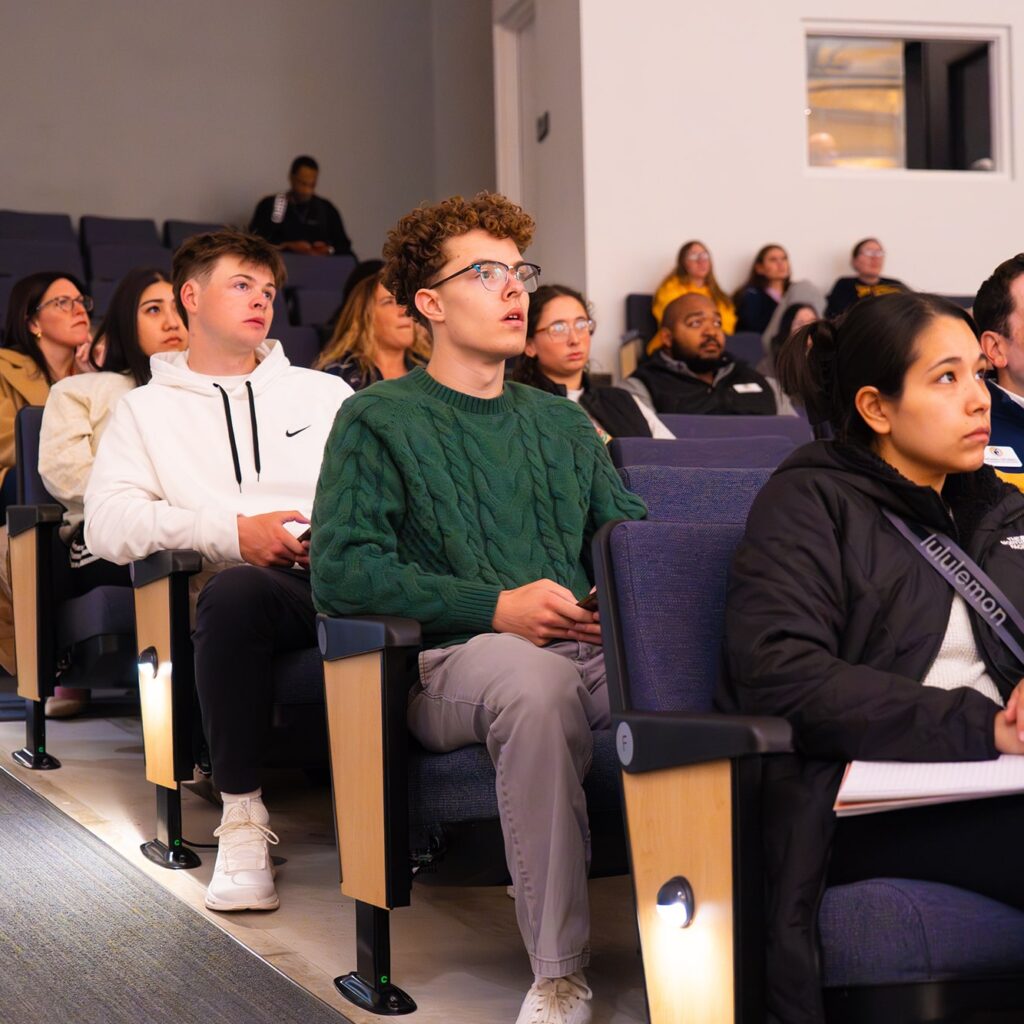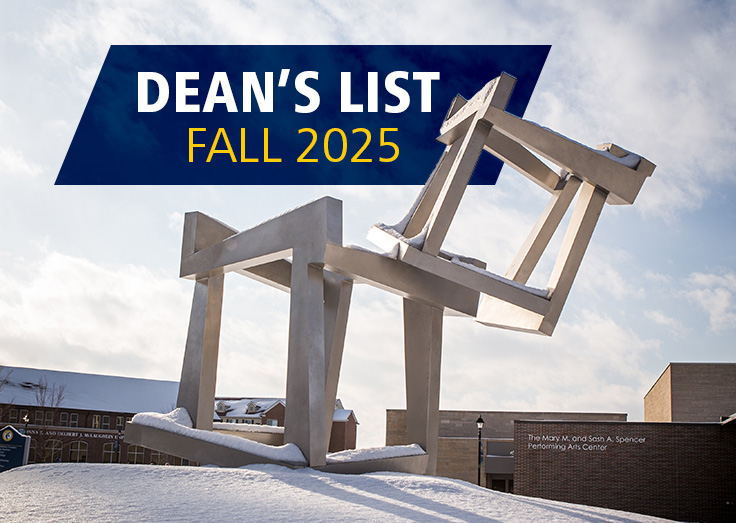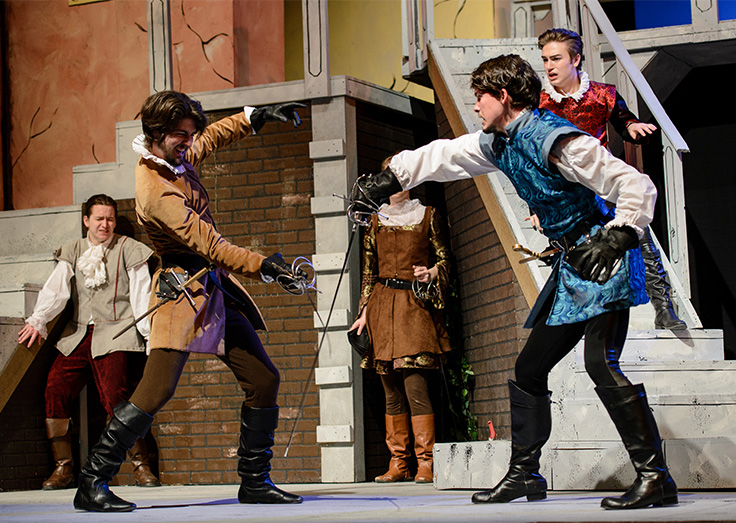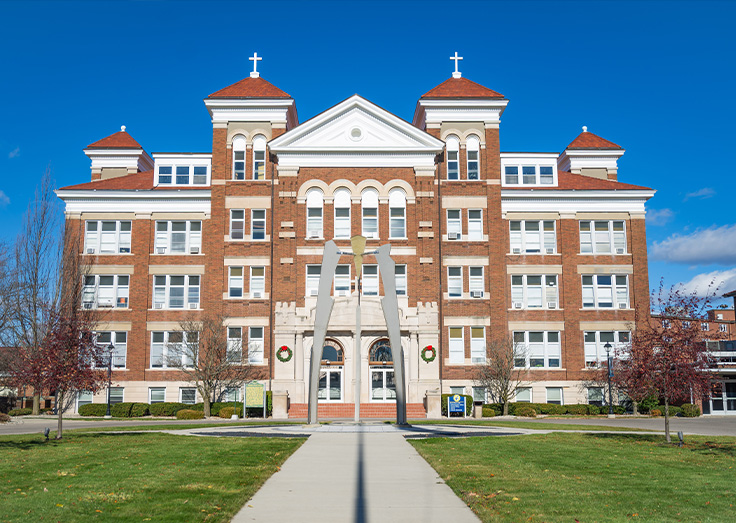| Time | Event Name | Speaker(s) | Location |
|---|---|---|---|
| 9:00am – 10:00am | FYE Hey, Kiddo Projects | Projects are inspired by the book Hey, Kiddo by Jarrett J. Krosoczka. | PAC lobby |
| 10:00am – 11:15am | Keynote Speaker | Welcome: Pres. Cheri Betz Prayer: Nate Rawlins, Campus Ministry Introduction: Wendy Crosby, Common Dialogue Day Chair Keynote: Jarrett J. Krosoczka, author and illustrator | PAC Theater and Teams Livestream |
| 11:30am – 12:00pm | Break Out Session #1 | See Below | See Below – In Person and Virtual |
| 11:30am – 1:30pm | Lunch | Dialogue about “What’s Your Story?” over Lunch with Provided Discussion Questions | Cafeteria |
| 1:30pm – 2:00pm | Break Out Session #2 | See Below | See Below – In Person and Virtual |
| 2:15pm – 2:45pm | Break Out Session #3 | See Below | See Below – In Person and Virtual |
| 3:00pm – 4:00pm | “The Heart Still Hums” Documentary & Discussion | “The Heart Still Hums” (2020) by Savanah Leaf and Taylor Russel is a documentary short that follows five expectant mothers as they navigate pregnancy and birth in the context of poverty and drug addiction. 29min. Led by Gail Ryder | Rueckert |
| 4:15pm – 4:45pm | Prayer Service | Led by Campus Ministry | St. Dominic Chapel |
| 5:00pm – 7:00pm | Dinner | Cafeteria |
Keynote Presentation: Jarrett J. Krosoczka, Author and Illustrator
10:00 AM-11:15 AM: Keynote Presentation, Microsoft Teams and PAC Music Hall. (In-Person)
11:30 AM-12:00 PM: Q&A Breakout Session in DH
Breakout Session #1 ( 11:30am-12:00pm)
| Session Info | Description |
|---|---|
| Keynote Q & A Speaker: Jarrett J. Krosoczka Location: Rueckert (In-person) | Continuation of Q & A with our keynote speaker |
| My Story – a.k.a., What Not to Do Speaker: Julius Nagy Location: DH 203 In-Person | Survey of my life from birth to today. Exploration of the highs and lows and rising from the ashes. |
| How Telling the Stories of Common People Can Save the World Speaker: Renee Collings Location: DH 204 Teams Link | After 40 years in community journalism, I’ve learned that what I do isn’t just report on small-town events and local people. Rather, I hope to preserve empathy, truth, and belonging through those very stories. When we listen to one another–truly listen–we bridge divides, spark empathy, and remind the world of our shared humanity. Thus, telling the stories of common people can be seen as world-saving work. |
| From Legacy to Justice: Becoming THAT Social Work Professor Speaker: Elizabeth Davis Location: DH 205 Teams Link | As a third-generation Siena Heights graduate, my story reflects a legacy of learning, faith, and justice. This session invites participants to explore how their own stories shape their sense of purpose and courage to be “that person” who speaks up for others. Together, we’ll reflect on how our shared narratives can advance Siena’s mission and the Dominican pillars in pursuit of the common good. |
| Changing Minds Through Stories Speaker: Josh Keidan Location: DH 206 Teams Link | This interactive session will focus on how we communicate with those who have differing views, and the role of story in shaping and changing minds. |
Breakout Session #2 (1:30pm – 2:00pm)
| Session Info | Description |
|---|---|
| Collaborative Story-telling Through Improvisation Speaker: Josh Keidan Location: Rueckert (in person) | This interactive session will focus on teaching us how to create stories with others by collaborating effectively. |
| Digital Story-Telling in the Age of A.I. Speaker: Mary Raymond Location: DH 203 Teams Link | How are tools like ChatGPT reshaping authorship and narrative? This session invites participants to reflect on how their stories are mediated through digital platforms and emerging technologies. Together we’ll discuss the opportunities, ethical questions, and creative possibilities of storytelling in a world where human and AI voices meet. |
| What’s Your Family Story Speaker: Steven Wathen Location: DH 204 (in person) | What do you know about your family’s history? I have been researching my family history for over 30 years. Creating a family tree was my initial interest, but along the way I have learned a lot of interesting things that go beyond names and dates. I will share some of what I’ve learned about my own family history and give some ideas for getting started on your own family history if you are interested. |
| Therapeutic Story Telling: Narrative Therapy in Practice Speaker: Psychology Club and Amy Wertenberger Location: DH 205 Teams Link | This session introduces students to narrative therapy, an approach that helps people explore how their personal stories shape identity and well-being. Tied to the theme “What’s Your Story?”, the presentation shows how reframing life narratives can promote healing, empowerment, and self-understanding. |
| 9/11: When Memory Becomes History Speaker: Renee Collins & Intro to Journalism students Location: DH 206 Teams Link | Students in my Intro to Journalism class spent a few days learning about 9/11 and then developing questions and interviewing their parents, grandparents, or older adults who had strong memories of “America’s Darkest Day,” as a headline in the Detroit Free Press announced on Sept. 12. Students will share a little about what they learned from the interviews and read excerpts from their stories. The goal of the assignment goes back to a sign I remember seeing in a Newsweek photo from the Jonestown Massacre: “Those who do not remember the past are condemned to repeat it” and highlights the transition students explored from lived experience (their parents’ experience) to historical understanding (their generation’s learning). |
Breakout Session #3 (2:15pm-2:45pm)
| Session Name | Description |
|---|---|
| Using Fiction to Tell Your Truth Speaker: Tony Farina, presenter Mark Vroman, moderator Location: Rueckert Teams Link | I want to share some of my personal experiences with fiction writing beginning with my first, terrible short story in middle school all the way through my current book series. I want to talk about how I’ve used those stories to work through events in my life. I will touch on the idea of biographical fiction and how, when done correctly, it can make a person, unique story, a universal one that connects with readers from all backgrounds and allow them to find themselves in the stories as well. |
| Your Life as a Tree Speaker: Wendy Crosby Location: DH 203 (in person) | Participants will be invited to draw their life as a tree, with the roots representing the past, the trunk representing the present, and the branches representing the future. The last few minutes will be reserved to share your drawing with a partner. |
| Poetic Stories Speaker: Josh Keidan Location: DH 204 Teams Link | This interactive session will provide participants with a poetic framework for sharing their experiences, which we will use in the session to write our own poems. |
| John Dewey’s Reconstructive Experience as a Means to Liberation Speaker: Chitranjan Greer-Travis Location: DH 205 (in person) | As a normative ideal, philosopher John Dewey’s development of a progressive pedagogy is quite plausible and remarkable. Although there is much work to do to dismantle systemic barriers that would prevent Dewey’s model from coming to fruition, his model is a beautiful blueprint to sustain democracy and help us to become more competent, purposeful and ethical. I draw on my lived experience as a Detroit Police officer (2016-2020) and reflect upon my decision to resign post-pandemic and the death of George Floyd. |
| How do you make a difference? Speaker: Jeff Lake Location: DH 206 Teams Link | A foundational pillars of much of Christianity (and broader religion, and for that matter, secular humanism) is that we have an obligation to “do good.” How we find our place and way to “do good” while still “Doing well”? I will use my story as illustrative of this process, and invite discussion to follow of how we have met that moment so far, and how we look to do so down the road. |





